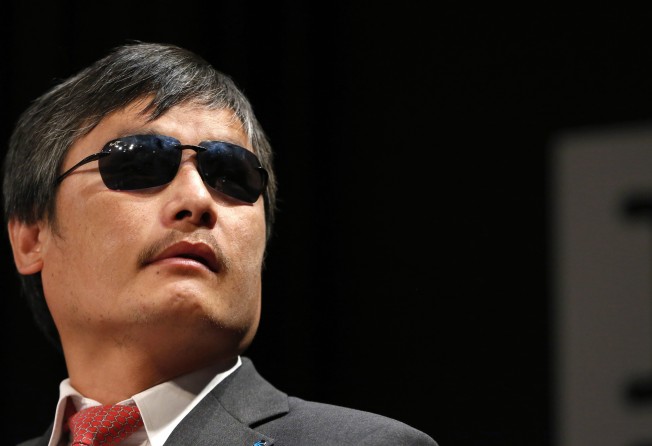China's restrictions on barefoot lawyers could backfire
Aaron Halegua says social stability may be jeopardised unless the representation gap is bridged

In April 2005, the blind activist Chen Guangcheng led a group of families to a courthouse in rural China. After suffering unlawful detentions and forced sterilisations under the government's one-child policy campaign, they planned to sue the township mayor. A judge initially refused to accept the case. But Chen and the villagers argued there was no legal basis to reject it and insisted it be accepted. The judge relented and the lawsuit proceeded.
Chen recounts this story in his new autobiography, The Barefoot Lawyer. He is the most famous member of a group of mostly self-taught individuals providing low-cost or free legal services, despite lacking any licence to do so. The book's release coincides with a heated debate about the appropriate role for barefoot lawyers in China's developing legal system, which was sparked by recent legislative amendments that will restrict their work.
During the past 20 years, Chinese law made it very easy to use barefoot lawyers and their role in the legal services market grew. A litigant could choose any other citizen to represent him so long as the court approved; such approval was routinely granted.
Proponents of barefoot lawyers note that they provide at least some form of legal representation to the many citizens who are unable to hire lawyers or obtain other help. For, while the number of Chinese lawyers has grown significantly, they are highly concentrated in urban areas. And even when rural residents can find lawyers, their fees may be prohibitively expensive.
Barefoot lawyers also play a significant role in administrative litigation - that is, when a citizen sues the government. In various localities, barefoot lawyers represent plaintiffs in up to a third of all such cases. These claims often contest government land seizures, fines and taxes, environmental pollution, or local corruption.
Lawyers are reluctant to take these "high risk, low reward" cases. Plaintiffs are often seeking to change the government's behaviour, not recover monetary damages. Lawyers also fear retaliation by the local government, such as revocation of their law licence. Legal aid is generally unavailable in sensitive cases because the local government controls that system. A barefoot lawyer is sometimes the only option.
But barefoot lawyers also have their critics. Some party officials warn that their rights protection activities threaten social stability. Judges have argued they inadequately represent parties due to their lack of legal expertise and employ disruptive tactics in court. Even worse, barefoot lawyers may simply cheat parties out of their money. Licensed lawyers, echoing these arguments, have also lobbied for limiting this perceived source of competition.
In this context, China amended the law governing civil cases, effective as of 2013, to restrict citizens' ability to employ barefoot lawyers. An identical amendment for administrative cases takes effect in May. No longer can any citizen represent a party simply by obtaining court approval. Instead, barefoot lawyers may only appear in court in two instances.
First, a party's close relative may serve as his representative. But few people have an immediate family member with legal expertise. The second method requires the party to obtain a letter recommending the barefoot lawyer from either the party's employer, the residents' or villagers' committee where the party lives, or a "social organisation".
For civil cases, the recommendation requirement has not weeded out the "bad" barefoot lawyers, as the committees lack guidance on when to issue the recommendations. However, when the new rule is applied to administrative cases, those barefoot lawyers seeking to bring sensitive cases will be screened out. Employers are unlikely to risk their relationship with the government by issuing recommendation letters. And many rural residents have no employer.
The residents' and villagers' committees essentially function as branch offices of the local government. Similarly, China's larger "social organisations", such as the trade union, are staffed by civil servants and largely indistinguishable from government organs. These entities will not assist citizens to sue the government over sensitive matters.
Thus, the new rules on administrative cases will effectively prevent all barefoot lawyers from appearing in such actions.
If they are unable to find representation, citizens may forego the courts altogether and resort to more drastic measures. Thus, China's desire to maintain social stability requires bridging the representation gap. For its part, the government could grant lawyers more independence, create financial incentives to litigate administrative matters, encourage pro bono work, and ensure legal aid is available in sensitive cases, particularly in rural areas. But, ultimately, it falls to Chinese lawyers to fill the void.
Aaron Halegua is a research scholar at New York University School of Law's US-Asia Law Institute